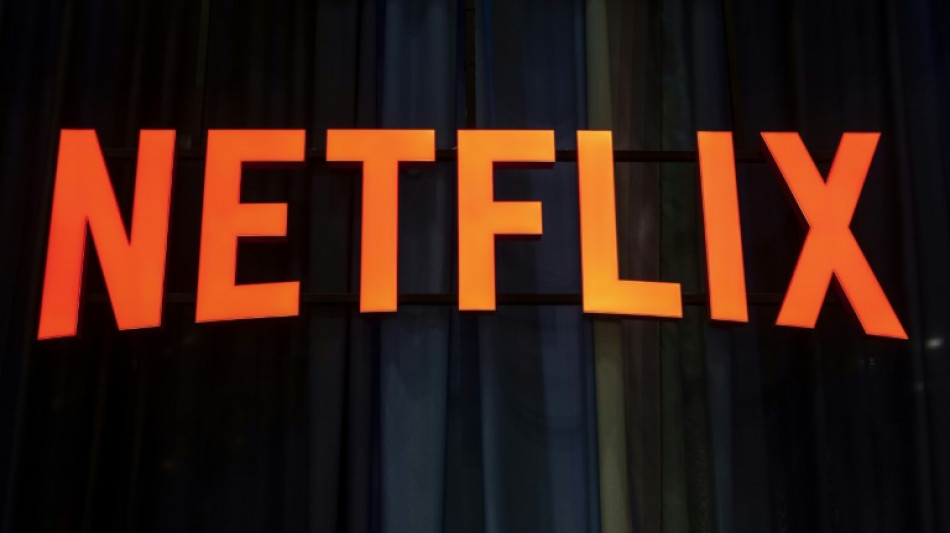
Netflix shares plunge as subscribers drop

Netflix shares lost a quarter of their value Tuesday after the company revealed its ranks of subscribers shrank in the first quarter of this year.
It was the first time in a decade that the leading streaming television service had lost subscribers. The company blamed the quarter-over-quarter erosion to suspension of its service in Russia due to Moscow's invasion of Ukraine.
Netflix ended the first quarter of this year with 221.6 million subscribers, slightly less than the final quarter of last year.
The Silicon Valley tech firm reported a net income of $1.6 billion in the recently ended quarter, compared to $1.7 billion in the same period a year earlier. Netflix shares were down more than 25 percent to $258.39 in after-market trades that followed release of the earnings figures.
"We're not growing revenue as fast as we'd like," Netflix said in an earnings letter.
"Covid clouded the picture by significantly increasing our growth in 2020, leading us to believe that most of our slowing growth in 2021 was due to the Covid pull forward."
Netflix believes that factors hampering its growth include the time it is taking for homes to get access to affordable broadband internet service and smart televisions, along with subscribers sharing their accounts with people not living in their homes.
The streaming giant estimated that while it has nearly 222 million households paying for its service, accounts are shared with more than 100 million other households not paying subscription fees.
"Account sharing as a percentage of our paying membership hasn’t changed much over the years, but, coupled with the first factor, means it's harder to grow membership in many markets," Netflix said.
Netflix last year began testing ways to make money from people sharing accounts, such as by adding a feature that lets subscribers pay slightly more to add other households.
Another factor for Netflix is intense competition from titans such as Apple and Disney.
"Our plan is to reaccelerate our viewing and revenue growth by continuing to improve all aspects of Netflix -- in particular the quality of our programming and recommendations," Netflix said, adding that it is "doubling down" on content creation.
- Inflation squeeze -
Along with fierce competition, Netflix and its rivals in streaming television are up against a rate of inflation that has people likely taking stock of how many entertainment subscriptions they have racked up, according to analyst Rob Enderle of Enderle Group.
"With inflation taking hold, people are starting to watch their pennies," Enderle said. "You get a situation where people are thinking through the subscriptions they have and the subscriptions that they keep."
Netflix recently announced subscription price bumps in the United States, with the basic option now costing $9.99, and the most expensive going up to $19.99.
A big player in the market like Netflix will find it hard to grow in that kind of economic environment, especially in a market like the United States where it is deeply penetrated, Enderle told AFP.
The streaming television race is heating up, with Disney showing earlier this year that it was closing the gap with market leader Netflix, whose stride has slowed.
Like the Prime video streaming service fielded by Amazon, Disney is copying Netflix's tactic of investing in local content that appeals to the language, culture and tastes in respective international markets.
Netflix has made that approach work, backing original blockbusters such as "Squid Game" from South Korea and France's "Lupin."
(G.Gruner--BBZ)

 London
London

 Manchester
Manchester
 Glasgow
Glasgow
 Dublin
Dublin
 Belfast
Belfast
 Washington
Washington
 Denver
Denver
 Atlanta
Atlanta
 Dallas
Dallas
 Houston Texas
Houston Texas
 New Orleans
New Orleans
 El Paso
El Paso
 Phoenix
Phoenix
 Los Angeles
Los Angeles



